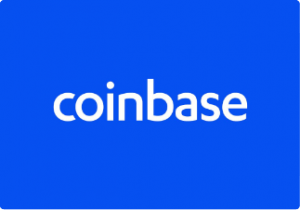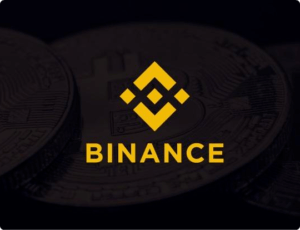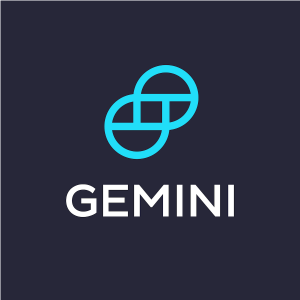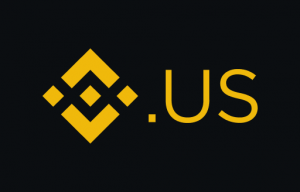Top 5 Crypto Exchanges – A Quick Comparison Guide
There is no one-size-fits-all exchange. Each has its own unique benefits, which may appeal more strongly to you based on factors like your experience level, your preferred tokens and asset types, and how often you want to trade.
Let’s have a look at the top 10 crypto exchanges available in the US today, along with the types of assets they support, the fees you can expect to pay, and which may be the best fit for your level of trading experience.
A Closer Look at the Top 3 Crypto Exchanges
Let’s take a closer look at our top 3 exchanges. These are our top picks if you’re a beginner, or you’re a bit more experienced and looking for more advanced options. There are loads of exchanges out there, so before you get overwhelmed by choice, check these out first.
Coinbase (Best for Beginners)
Coinbase is, the go-to platform if you’re new to trading. Why? Well, the user interface is super user-friendly. Security is top notch. Then you have the Coinbase Learn range of educational tools, which will help you both in terms of understanding the platform, and help you learn a thing or two about trading in general. Coinbase is perfect if you’re looking for an easy introduction to the world of crypto. It’s also a great choice if you’re a more advanced trader, looking to make the most of your portfolio. At the moment, Coinbase is offering $5 in Bitcoin when you sign up and make your first trade. Terms and conditions apply. Here’s a Coinbase Learn video on how to read candlestick charts.
Key Features
- Supports 250+ cryptocurrencies
- Coinbase Advanced Trade for lower fees and pro tools
- AI-powered portfolio insights and auto-invest strategies
- Coinbase Card: Spend crypto and earn rewards
- Custody service with over $300B in assets
Kraken (Best for Advanced Traders)
Kraken is a Swiss Army knife on steroids. If you’re a more experienced trader, it’s a great choice. If you’re a beginner, though, and don’t mind learning a few things, you’ll also be impressed. Kraken also offers a wide range of explainers, guides, and tutorials to help users understand crypto basics and get to grips with trading strategies. With over 500 supported assets, margin trading, and advanced charting tools, Kraken is built for performance.
Key Features
- Kraken Pro: Advanced trading interface
- Staking for over 15 assets
- High security with proof-of-reserves
- Kraken Institutional—a suite for hedge funds and family offices
Uphold (Best for Multi-Asset Trading)
Uphold lets you trade more than crypto. You can trade precious metals, fiat currencies, U.S. equities, and even carbon credits, all from one account. It’s also easy to use, whether you’re a beginner or you’ve been trading for years. That’s thanks to a simple-to-understand, all-in-one interface.
Key Features
- 300+ cryptocurrencies
- Cross-asset trading (e.g., BTC to gold)
- Transparent fee structure
- Fully reserved and audited
How Pro Traders Choose an Exchange – Factors to Consider
Well, the short answer would be to check out the exchanges we’ve listed here, but that may seem a little facetious. Choosing your exchange is going to depend on a few factors. We’ll go into those in more detail in a sec. Right now, let’s look at what your trading experience is going to be like. Experienced traders ask themselves the following questions.
- What are my trading goals?
- Will this exchange be easy enough for me to use and make the most out of?
- Which exchange has the features that will best help me reach my goals?
- How much will I be paying in fees?
- Which tokens are supported?
Weigh up your answers, and make an informed choice. Right, now for the serious stuff. Here’s a guide on what to look for when deciding on an exchange.
Security is Your Top Priority
The top exchanges take security very, very seriously. So should you. They offer multiple security measures, including two-factor authentication, cold storage, and insurance to protect your investments and your data. FYI: It’s best to store larger amounts of crypto securely, in one of the safest crypto wallets available, rather than on an exchange. Here are the most important security features to look for on an exchange:
- Two-Factor Authentication (2FA): 2FA adds an extra layer of login protection.
- Cold Storage: The top exchanges store most of your funds offline, in case of hacks.
- Insurance Coverage: Some exchanges will offer you insurance to protect your assets against breaches or theft.
- Proof-of-Reserves: This shows that the exchange holds enough assets to cover its user balances.
- Regulatory Compliance: Licensed and regulated exchanges have to follow legislation and regulations. In other words, you’re protected by laws and policies that exchanges have to hold to.
Fees You Need to Know About
It pays to know what you’ll be handing over in fees. Literally. Take the time to understand the fee schedule before you sign up. It can save you money and protect your profits, especially if you trade smaller amounts more often. Run a few estimates on what you could expect to pay in fees on each platform per month, based on your trading preferences.
Exchanges typically charge:
- Maker/Taker Fees: Fees for placing or filling orders on the market.
- Spread Fees: The difference between the buy and sell price. These fees are often hidden in the quoted price, so take note of these.
- Withdrawal Fees: You’ll pay withdrawal fees on most exchanges if you want to move funds off the platform.
- Tiered Pricing: Some platforms reduce fees if you’re a high-volume trader or you hold native tokens (like BNB on Binance).
Are your assets supported?
You’ll find that most of the top crypto exchanges support multiple asset types, but not all of them. Some focus on major coins, NFTs, altcoins, or DeFi tokens. Some also trade other asset types, metals, or even carbon credits. Check out which exchange offers you the best support for the assets you’ll be trading. Make sure the platform supports:
- The coins and other assets you want to buy or trade
- New or trending tokens (if you’re exploring altcoins)
- Cross-asset trading (e.g., crypto-to-metal or crypto-to-fiat)
Need a secure place to store a wide range of assets? Check out our guide to the best crypto wallets of 2025.
Experience is key
Whether you’re experienced or a novice, a good user experience makes trading a lot easier and more fun, too. Look out for:
- Simple, intuitive interfaces that make it easy to buy, sell, and manage your crypto.
- Mobile apps with full functionality for trading on the go.
- Educational resources like tutorials, glossaries, and learning rewards (e.g. Coinbase Learn).
More Advanced Tools
Want to speculate? Are you into trading derivatives, like futures or options? You’ll want to access more advanced features. Exchanges like Kraken and Binance offer:
- Margin trading and futures contracts
- Advanced charting tools and technical indicators
- API access for algorithmic trading
- Customizable dashboards for real-time market tracking
Great Customer Support = Peace of Mind
When things seem like they’re going wrong or you need clarity on something platform-related, good support is your golden ticket to peace of mind. Look for:
- 24/7 live chat or ticketing systems
- Comprehensive help centers with FAQs and guides
- Positive user reviews that mention helpful, timely support
Some exchanges also offer multi-language support, or via social media channels.
What is a Cryptocurrency Exchange and How Does it Work?
A cryptocurrency exchange is a digital platform where you can buy, sell, and trade cryptocurrencies like Bitcoin, Ethereum, and other tokens. These platforms act like marketplaces for digital assets, and you can buy and sell crypto in real time.
Depending on what you want to do, you can choose between a centralized exchange (CEX) or a decentralized exchange (DEX). All of the exchanges we’re mentioning here are currently the safest crypto exchanges on the market. CEXs. Why? Well, a CEX is typically easier to work with, but let’s have a look at the pros and cons of both.
Centralized Exchanges (CEX)
You can store your assets on the exchange. You can also access other trading options, like staking, and earn interest on your assets. Most CEXs have educational resources that are super-helpful if you’re new to trading. We recommend checking those out. Customer support is usually great, and very helpful if you’re new to trading.
The downsides? You’ll need to keep some of your assets in a wallet on the exchange. If the exchange gets hacked or goes bust, you may lose your investments. Make sure you choose one of the best crypto wallets to keep your assets secure. You’ll need to verify your account, and that means sharing your private information. Lastly, you’re likely to pay higher fees, however, if you’re starting out trading, we recommend a CEX.
Decentralized Exchanges (DEX)
A DEX, on the other hand, allows you to trade straight from your own wallet. You don’t need to keep any assets on the exchange. Fees tend to be lower. Most also don’t require you to verify your identity. The downsides? They may not be regulated, so you’ll have less legal recourse if something goes wrong. Also, they may not offer the support you’ll find on a CEX in terms of customer support or educational resources. They’re usually more complex and can be a bit intimidating if you’re new to trading. Best to leave these up to the more experienced folk.
Five Game-Changing Crypto Developments That Will Boost Your Portfolio
The world of crypto is moving fast. Looking to boost your profits and make your life a bit easier? Check out these trends and developments, and use them to your advantage.
Regulations Are Getting Clearer
Governments all over the world are introducing clearer regulations around digital asset trading. That’s helping to boost investor confidence in digital assets and tokens. In turn, we’re seeing more major institutions and corporations getting in the crypto action. For you, that will likely mean both more stability (and possibly higher profits).
AI is Your New Secret Weapon
You can now access more AI-powered tools than ever before. What does that mean? Well, they can make trading a lot simpler, faster, and easier. Kraken, for instance, now offers AI-assisted trading bots and copy trading. You can use AI to automate trading strategies, predict prices, get insights into your trading, and make tax reporting simple – all in a few clicks.
The Gap is Closing
Want to trade traditional assets, like fiat currency, right alongside your digital assets? Exchanges are bridging the gap with conventional finance, offering crypto-backed loans, savings accounts, and even tokenized stocks and exchange-traded funds (ETFs). The convergence is attracting both retail and institutional investors.
Enhanced Staking & DeFi Access
You can now stake assets and access Decentralized Finance (DeFi) protocols directly from your dashboard on some exchanges. That’s good news, and you won’t have to move your crypto to another exchange, or learn a new platform.
Institutional Adoption
As mentioned above, the number of institutional investors investing in digital assets is growing massively. This is leading to more and more exchanges offering custodial services, compliance tools, and high-volume trading features that are better suited for hedge funds and asset managers.
Time to Get Started!
Finding the right exchange is easy. Check out the ones we mentioned here and pick the ones that best meet your trading goals and experience level. New to trading, and looking for an option that’s easy to use with fantastic support and educational resources? Check out Coinbase. Ready for more advanced trading tools? Kraken may be the way to go. Want to trade more than tokens, and dip your toe into traditional assets too? Uphold may be the right pick for you. These are the best exchanges you can trade on right now, so take your pick, and let’s get trading!
Compare the Best Crypto Exchanges Side by Side
FAQs
Think of it as an online marketplace for digital assets. It’s a trading platform where you can buy and sell tokens like Bitcoin, Ethereum, and altcoins. Some exchanges allow you to trade NFTs and traditional assets like fiat currency and precious metals. Choose one of our top picks and you’ll get additional services like wallets, educational content, and customer support.
Security is your top priority. Luckily for you, the exchanges we’ve mentioned all have fantastic security features. Next on the list (some would say equal) is to pick an exchange that’s easy to use, based on how experienced you are, and the features you’ll need. Then, consider fees.
Is a bank safe? Mostly, because they put a lot of time and money into security. So do the top exchanges. Like a lot of things in life, though, security is what you make it. The best exchanges all offer multiple security features like 2FA, cold storage, and insurance. Bottom line, though? Protect yourself. Buy a good hardware wallet to store your crypto – don’t keep it all on an exchange. Use strong passwords, enable 2FA, and keep an eye out for phishing scams.
The fees you’ll pay will vary from exchange to exchange, and according to the type of transaction you’re making. You can expect to pay trading fees – usually a tiny percentage of the value of a transaction. You’ll also likely pay Deposit fees and spread fees. Make sure you understand why and when you’ll be charged. Some exchanges will also charge you if your account is dormant for too long. Always review the fee schedule to avoid surprises.
Yes, most major crypto exchanges offer mobile apps for iOS and Android. Coinbase, Kraken, and Uphold all have mobile apps. A word to the wise, though – while mobile trading is convenient, make sure you’re using a secure connection, keep your device secure, and update it regularly.











